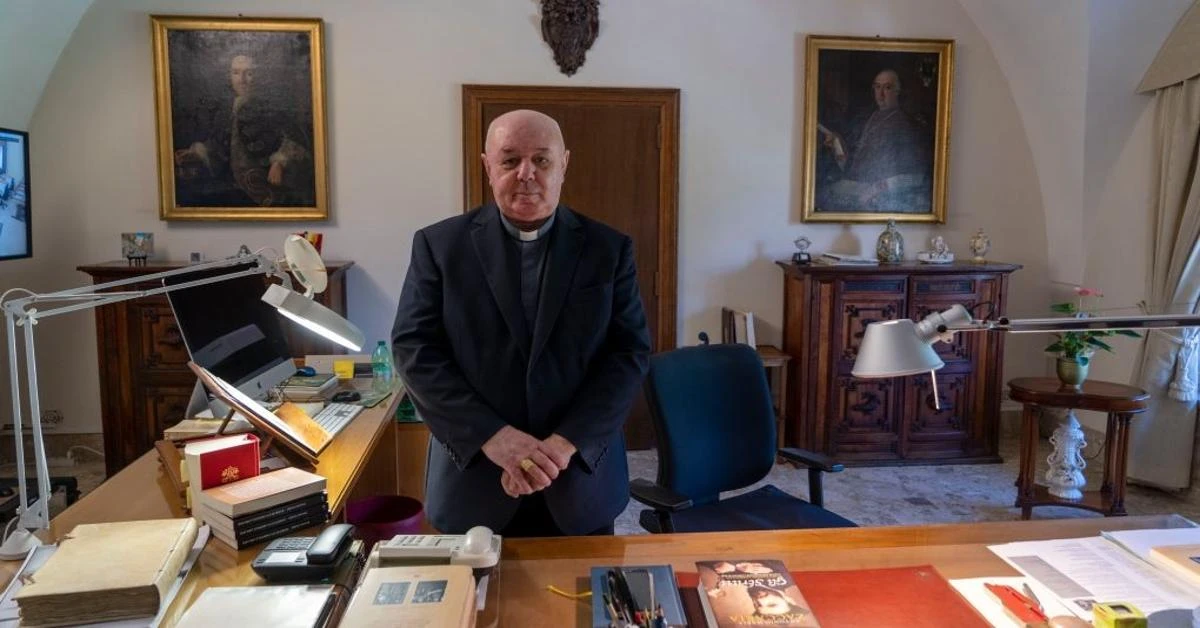Archbishop Sergio Pagano, the retiring Prefect of the Vatican Apostolic Archive, is casting new light on the Vatican’s hidden histories in the book “Secretum.”
This book-length interview with journalist Massimo Franco offers unprecedented insights into pivotal events and figures in church history.
“It’s the first time, and it will also be the last because I’m about to leave,” Pagano asserts, stressing the singular nature of his disclosures. His tenure overseeing the archives, spanning 45 years, has equipped him with a unique understanding of the Vatican’s intricate past.
Sergio Pagano’s critique of Pope Pius XII’s wartime silence seems particularly notable. He reflects on Pius’ decision not to speak out against Nazi atrocities, saying, “During the war, we know that the pope made a choice: He could not and would not speak. He was convinced that an even worse massacre would have happened.”
However, he voices his expectation for a stronger post-war stance; “After the war, I would have expected a word more for all these people who went to the gas chambers.”
The book also delves into lesser-known events, such as Napoleon’s 1810 looting of the Vatican archives and the 1922 conclave, uniquely financed by last-minute donations from U.S. Catholics.
The archbishop also highlights these instances as pivotal moments in the church’s history, revealing the complex interplay between religion, politics, and finance.
Pagano’s discussion extends to the sainthood cause of Pius XII, where he criticizes the limited research scope of the process: “Neither Father Gumpel nor Father Molinari ever set foot in the Apostolic Archive.” This statement points to a broader issue within the church regarding the sanctification process and historical accuracy.
He also touches upon the Vatican’s cautious stance on the creation of a Jewish state post-WWII, suggesting that Pius’ silence was politically motivated. “Any word from Pius about the Holocaust, even after the war, could have been read in political terms as a support for the foundation of a new state,” the archbishop comments.
“Secretum” is not just a recounting of past events; it also showcases Pagano’s role in preserving Vatican history. He proudly displays a 1530 letter from British nobles to Pope Clement VII relating to King Henry VIII’s annulment, a document that narrowly escaped Napoleon’s plunder.
Archbishop Pagano’s retirement marks the end of an era, but “Secretum” ensures that his insights into the Vatican’s past will continue to enlighten and challenge our understanding of church history.

